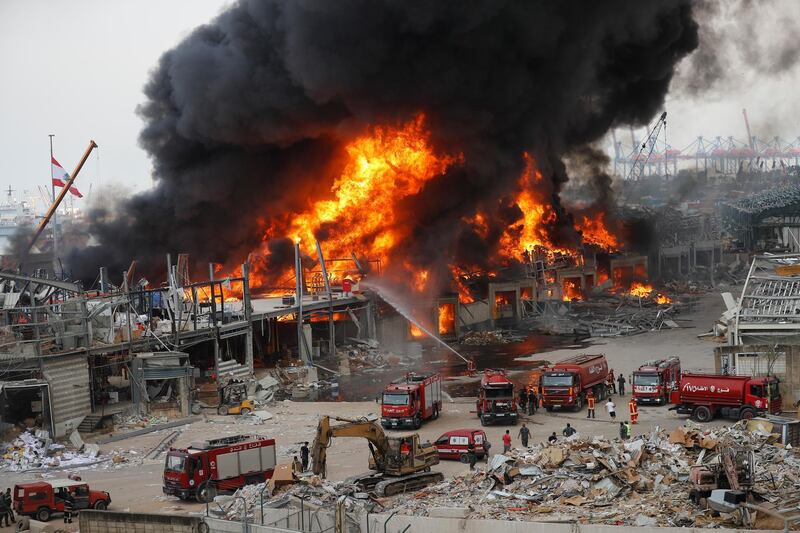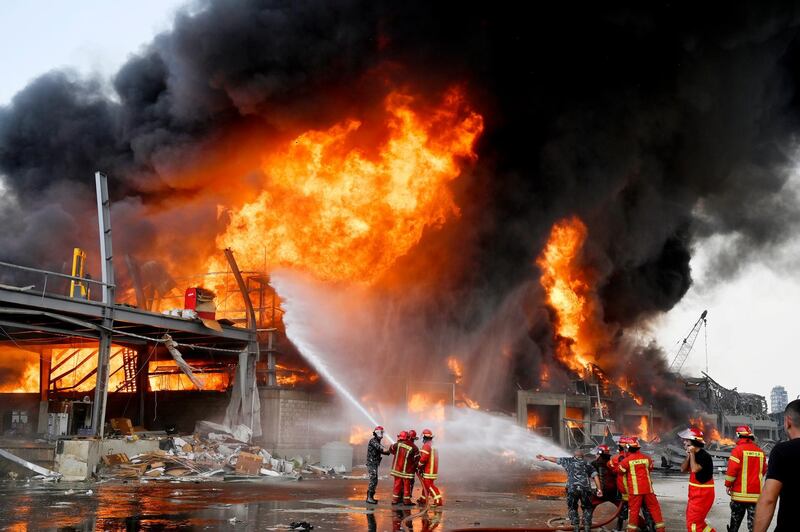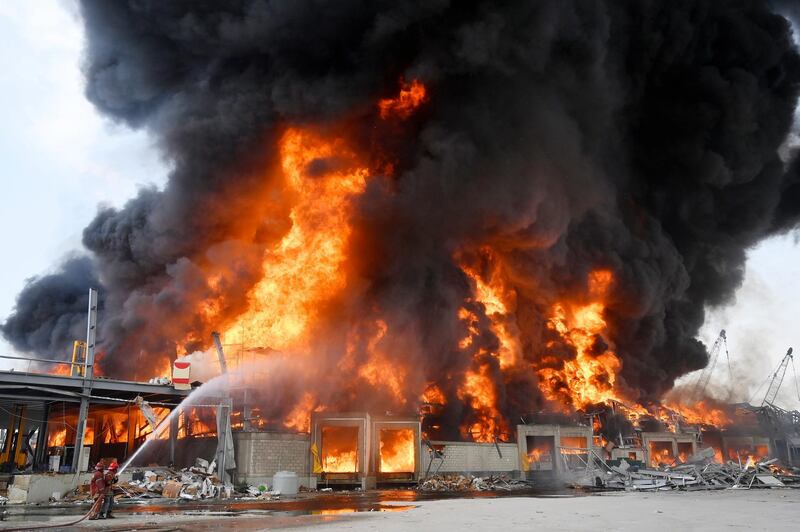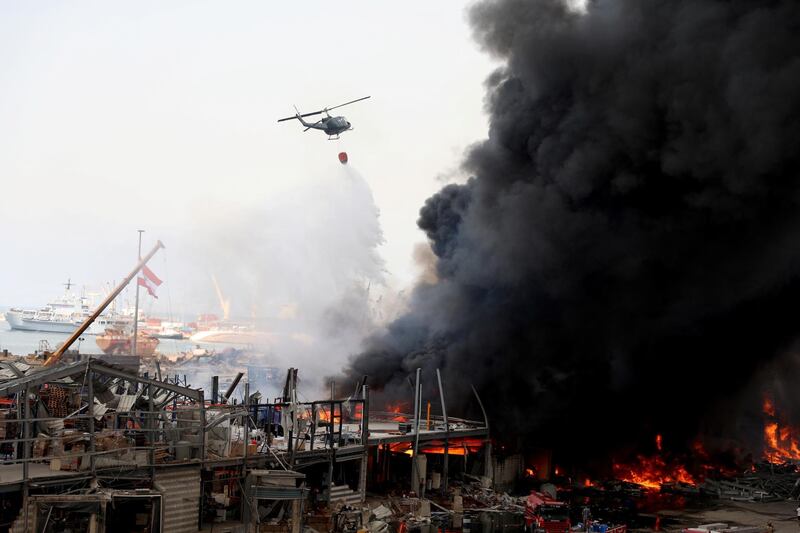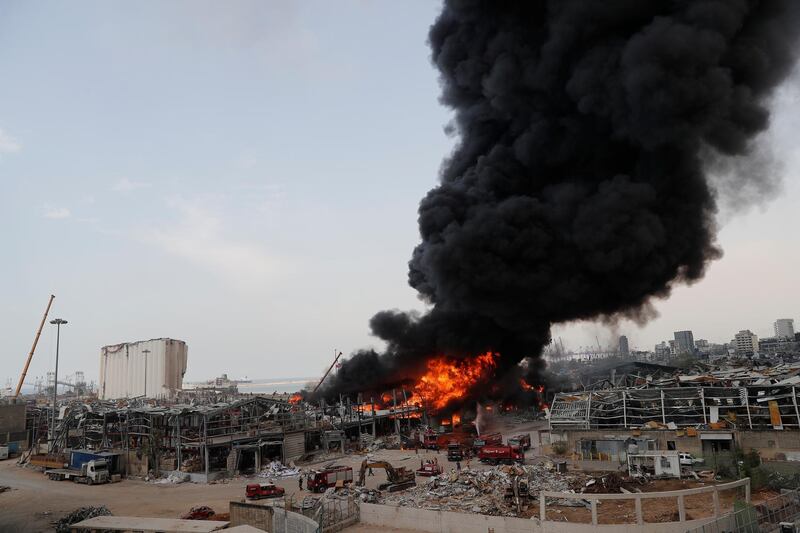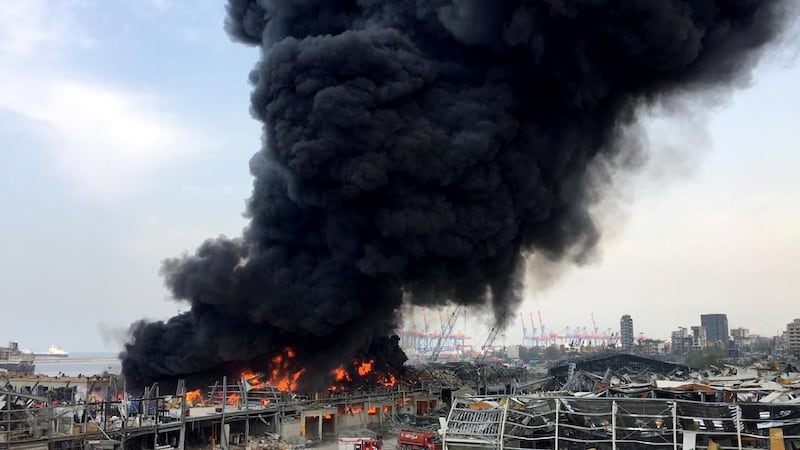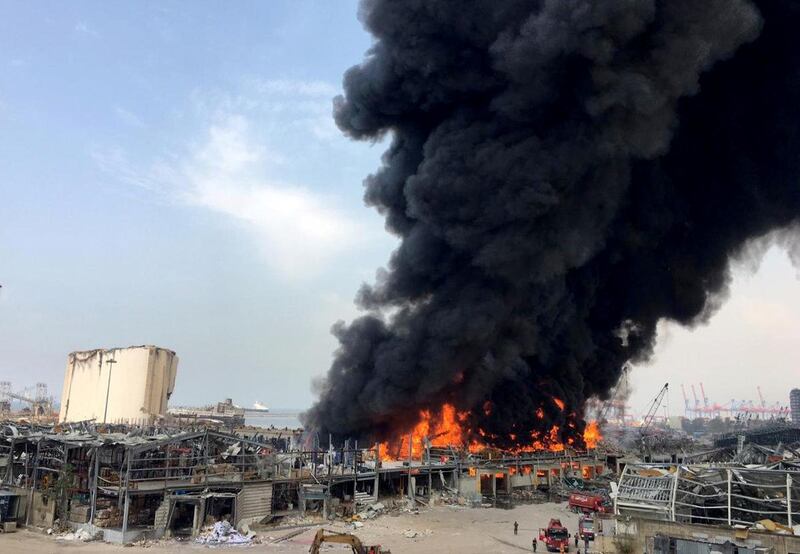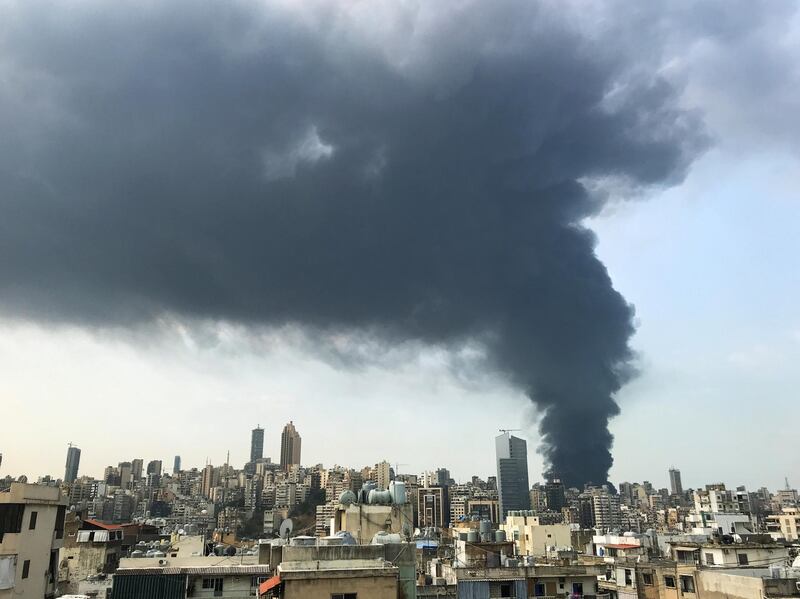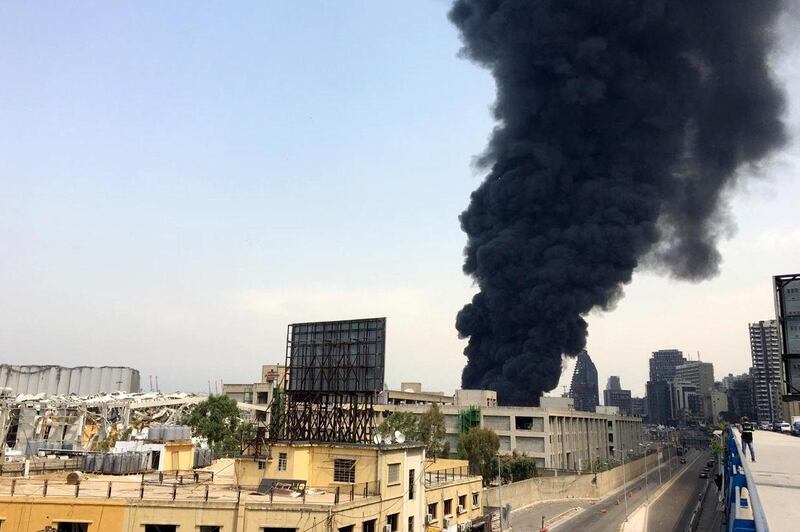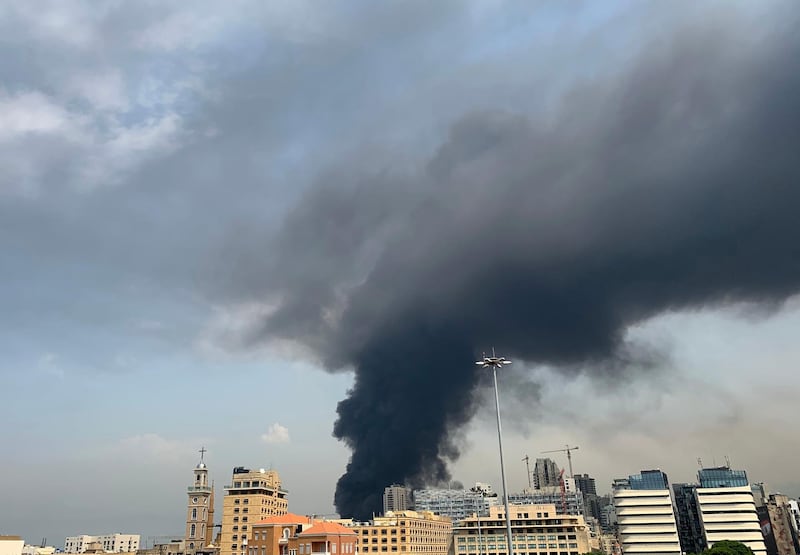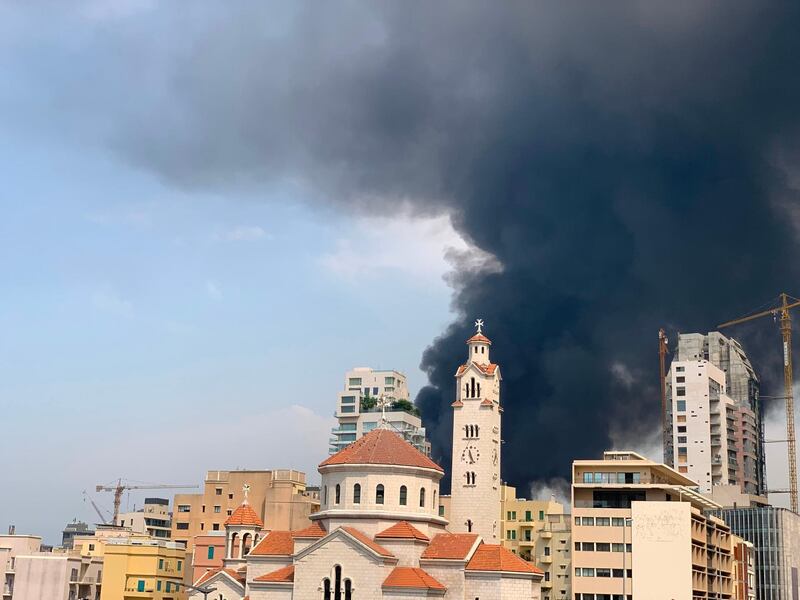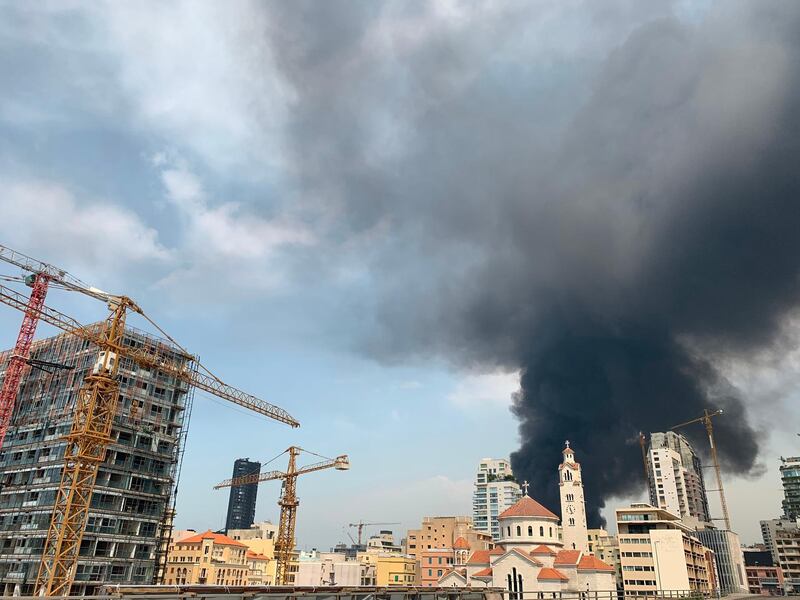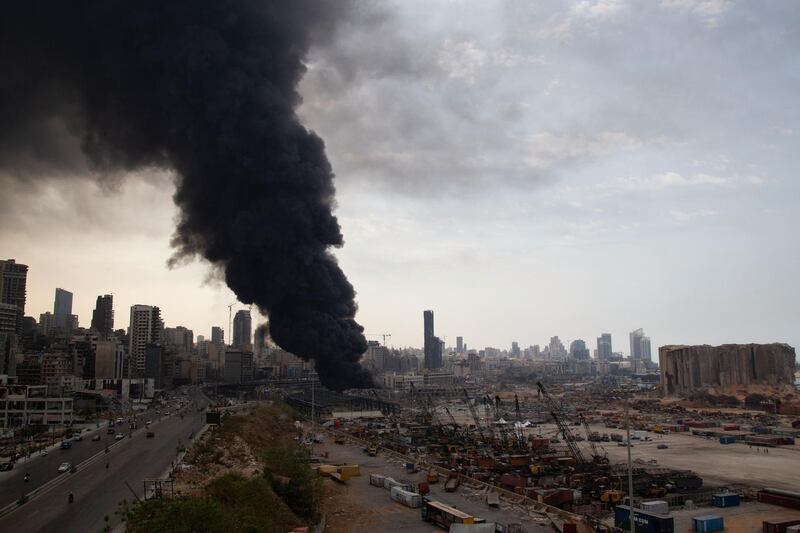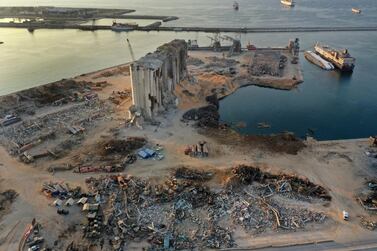Lebanese President Michel Aoun said the latest fire at Beirut port on Thursday might have been a technical error, sabotage or negligence as he ordered senior officials to prevent further incidents.
On Thursday, the army ordered people to vacate the area around the port as thick columns of black smoke billowed into the sky from a blaze at one of the few warehouses left in the free zone.
Port of Beirut ablaze
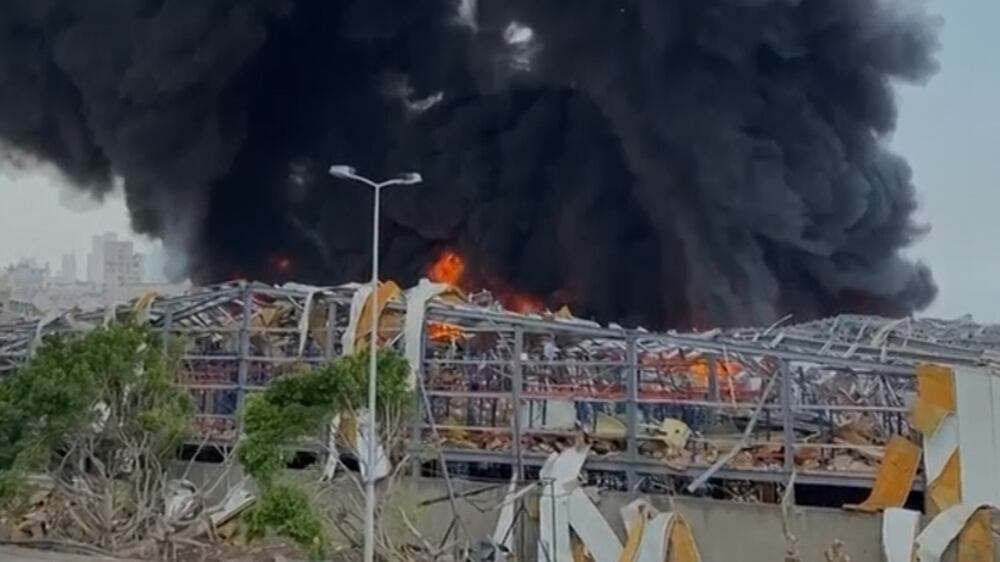
At the start of the Higher Defence Council meeting on Thursday, Mr Aoun ordered officials to prevent any more fires after Thursday’s blaze, which was the second this week.
"In all cases, the cause must be known as soon as possible and the perpetrators held to account," he said.
Beirut State Prosecutor, Judge Ghassan Oueidat, opened an investigation into the cause of the fire at the request of the caretaker justice minister.
“More than 16 Civil Defence vehicles are working to extinguish the fire at Beirut port in addition to vehicles belonging to the fire brigade, the Lebanese army and an air force helicopter,” Brig Gen Raymond Khattar, director of Civil Defence, told the state-run National News Agency.
Brig Khattar said the issue complicating the operation was “highly flammable materials such as rubber and oils that require exceptional procedures".
He said those procedures included adding foam to water to act as an insulating layer and starve the fire of oxygen.
Brig Khattar asked for support from the Beirut Governor, Marwan Abboud.
He appealed to “owners of private water tanks in the area to go to the site and feed water into the firefighting vehicles, so they do not have to move to fill up and waste time”.
The warehouse was also storing food for the International Committee for the Red Cross, the agency said.
Fabrizio Carboni, Red Cross director for the Near and Middle East, tweeted that 500,000 litres of cooking oil and food parcels were stored at the site.
“Our humanitarian operation risks to be seriously disrupted,” Mr Carboni said.
Officials said the cause of the new fire was unknown, but a witness told The National that workers were welding at the building when the blaze began.
"They were welding metal bars to fix the warehouse and in a fraction of a second, a big fire started that spread really fast because there is a lot of alcohol, tyres, cardboard and paper, so a lot of things that burn really fast," said Alain Khoury, 28, who works at a shipping company with warehouses at Beirut port.
"We ran. We heard people scream, 'Run, run'. We left everything and ran."
Videos on social media showed port workers running in fear as soon as the fire broke out, a chilling reminder of last month’s blast that killed dozens of port employees and 10 firefighters.
While emergency crews battled the blaze from the ground and an army helicopter dumped water from above, officials quickly moved to reassure the public that there was nothing that could explode.
'I am still feeling the earth shake. Living a flashback'
Panicked residents still opened windows and called each other to warn of the new fire.
Local TV stations said the companies with offices near the port asked their employees to leave the area.
Lebanese troops closed the major road that passes near the port, redirecting traffic to other areas.
“We opened all windows and are in the corridor right now,” said Dana Awad, a mother of two girls in a Beirut neighbourhood.
“I am still feeling the earth shake. Living a flashback.”
Others hid in bathrooms.
On August 4, a fire at a warehouse in Beirut's port ignited 2,750 tonnes of ammonium nitrate causing a blast that killed at least 190 people and wounded more than 6,500.
Three hundred thousand were left homeless and much of the downtown areas of the city suffered major damage.
Since then, the military and international experts have been working to find and move any other dangerous chemicals being stored in warehouses around the country.
They removed 4.35 tonnes of highly explosive ammonium nitrate near the entrance to the shattered port last week.
There was no indication that it was in the same warehouse as Thursday’s blaze.
Days after last month’s explosion, French and Italian chemical experts working amid the remains of the port identified more than 20 containers carrying dangerous chemicals.
The army later said that these containers were moved and stored safely away from the port.
